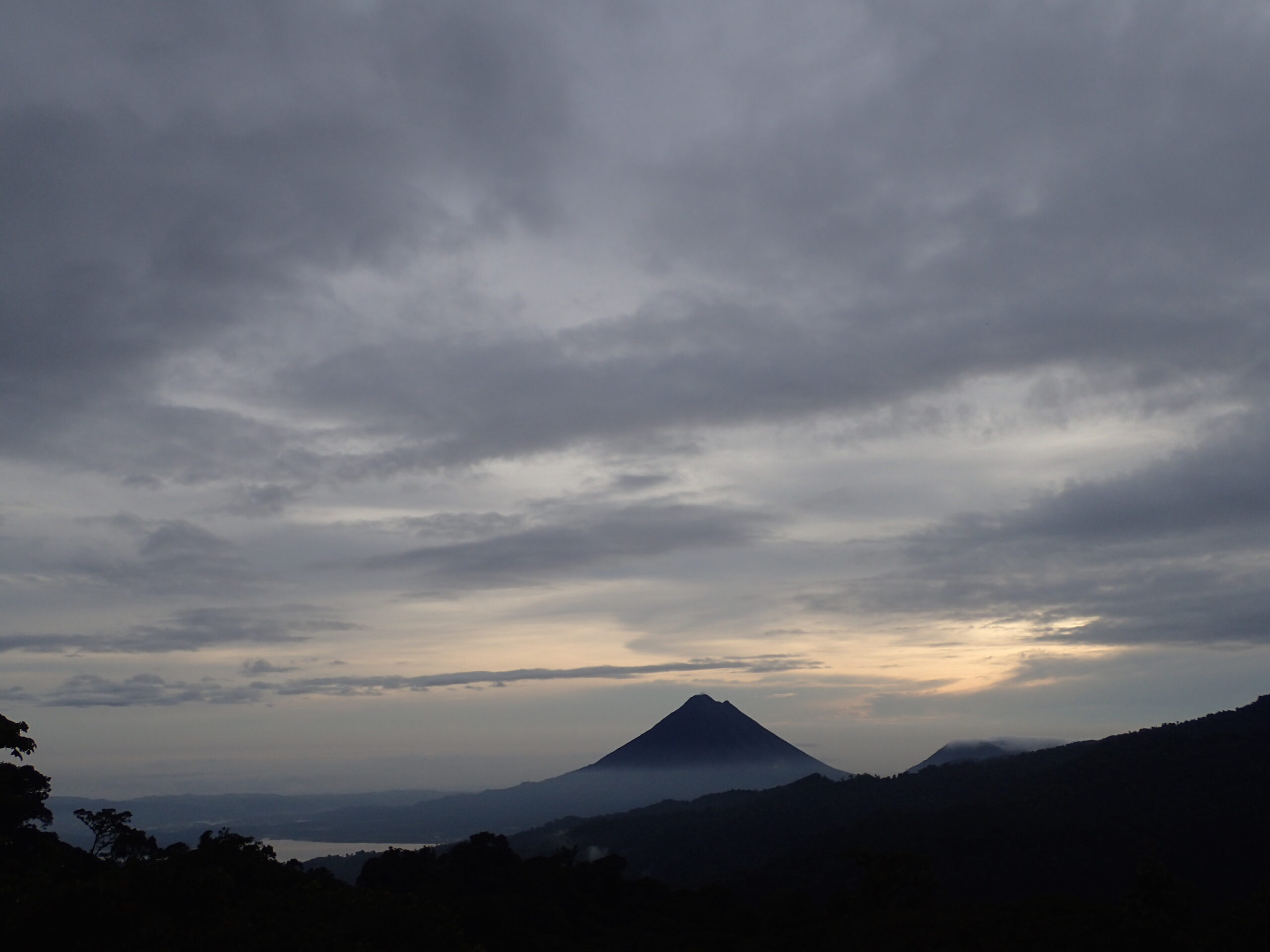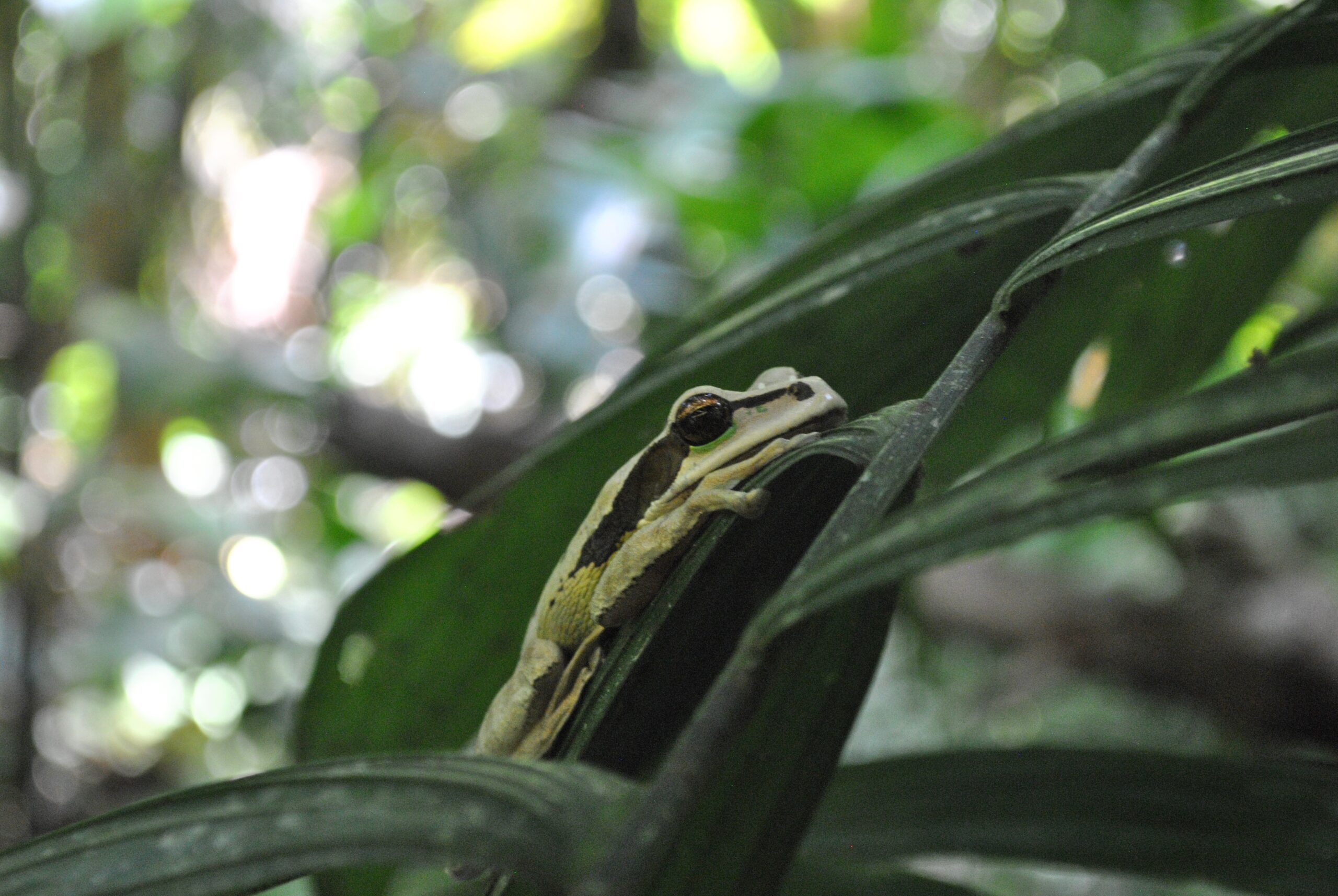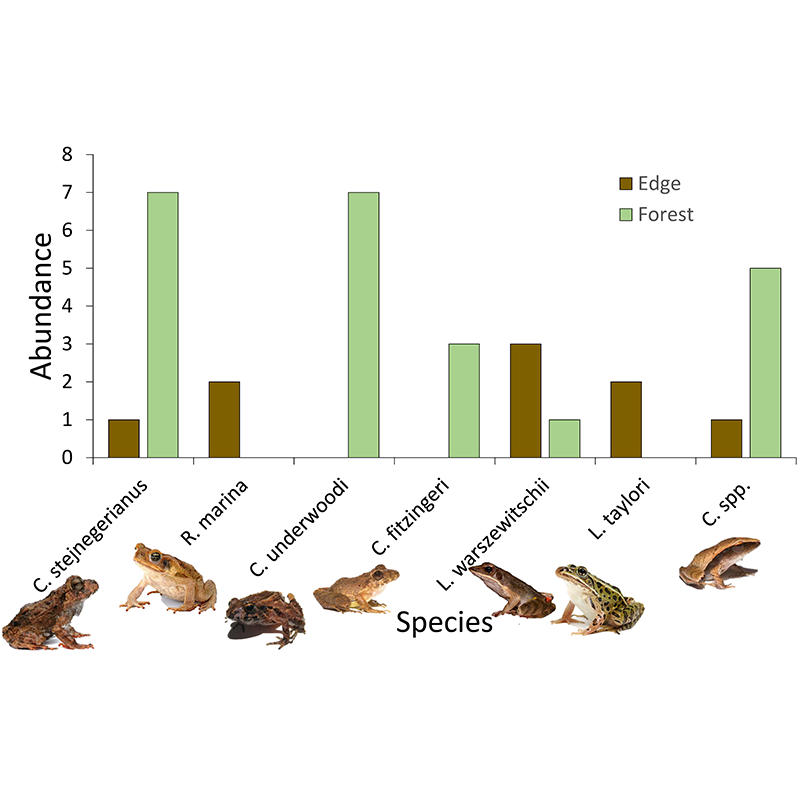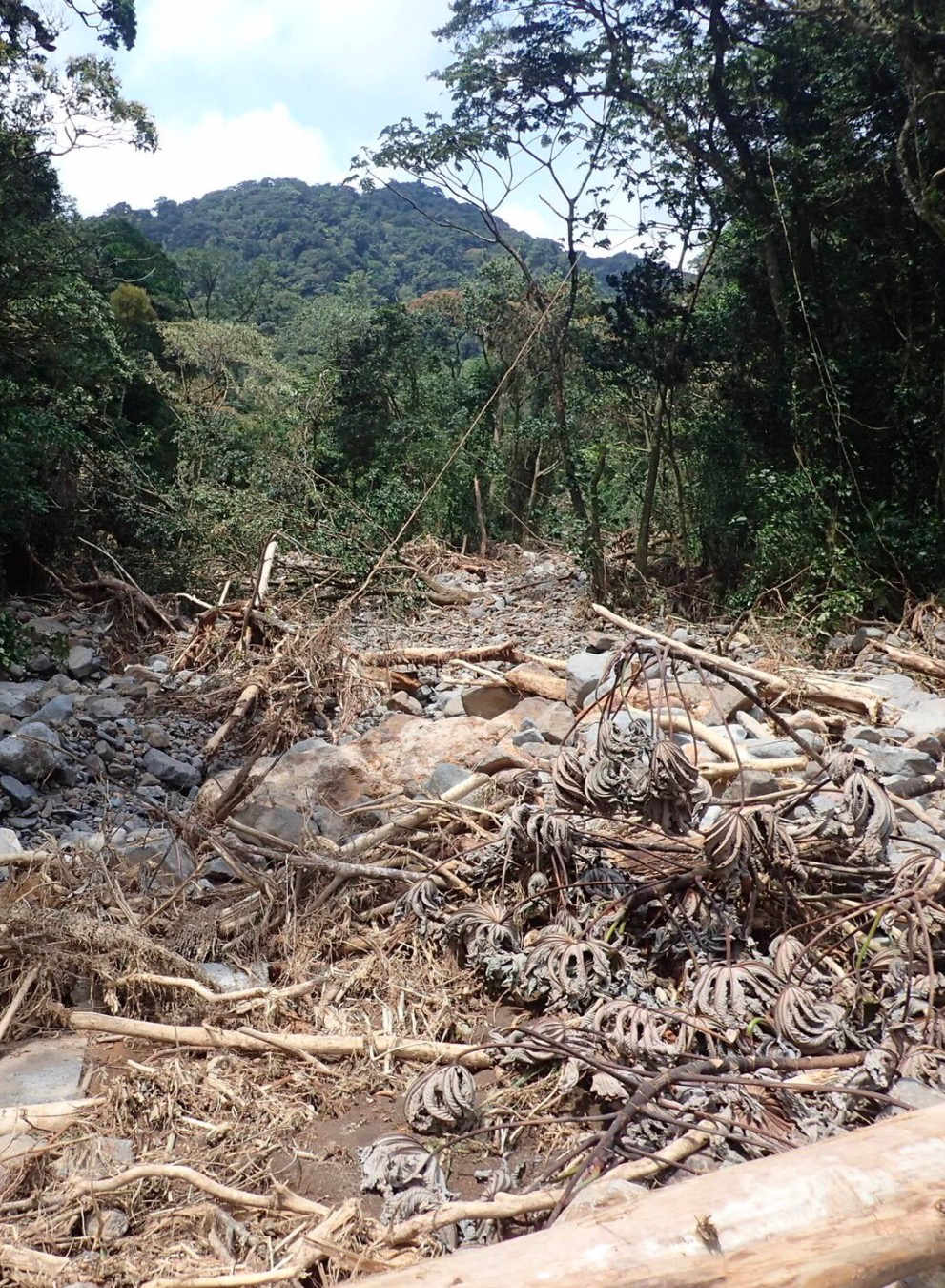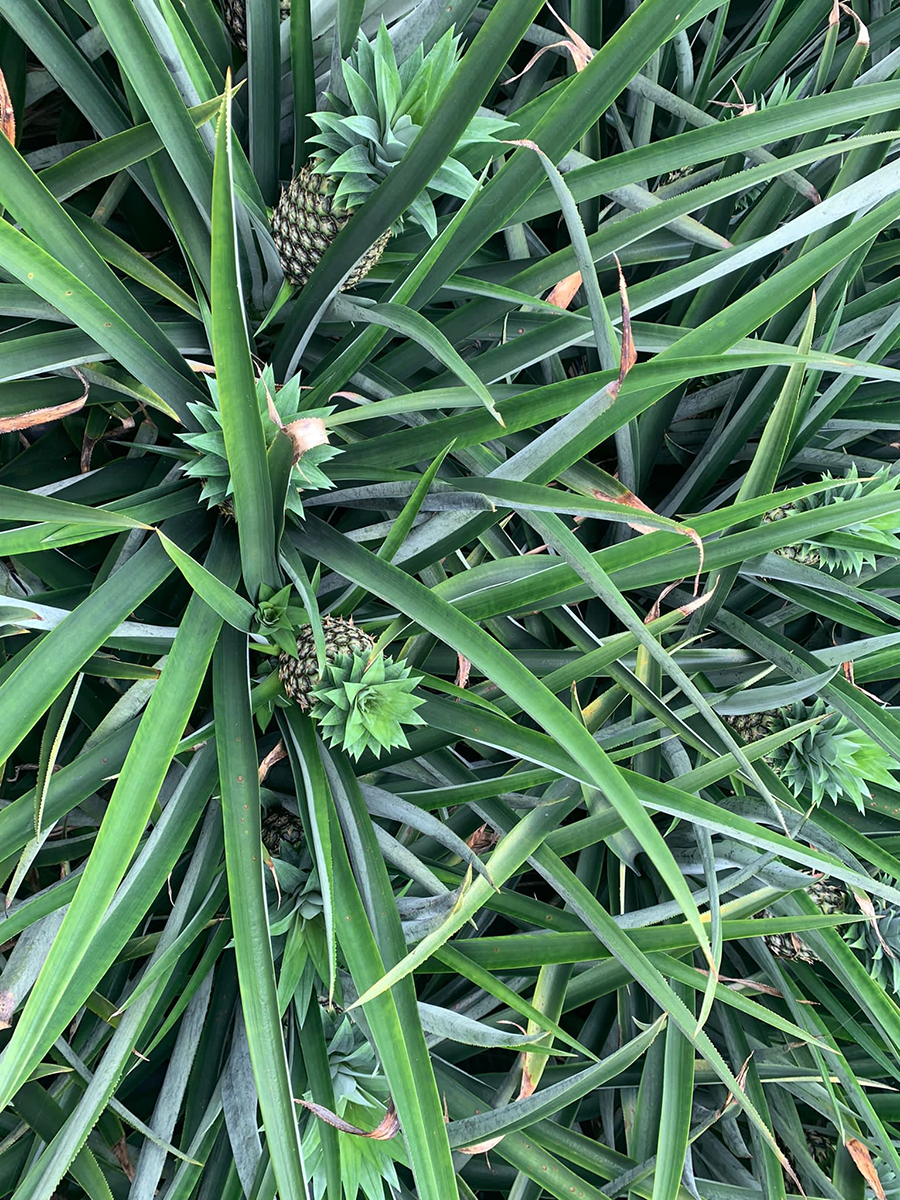We arrived at the Veragua research center on the tenth of September. Initial impressions were that of a ghost town. Due to it being the low season we were the only people in the park, the employees were very enthused to see us and greeted us as if we were the first people they had seen in years. Although there was a lack of people at the park, there was certainly no lack of biodiversity. Our first day we saw countless golden orb weaver spiders, whose size left few knees unshaken. This spider is of particular importance because of the tensile strength of its silk web, which is stronger than steel. Another organism of impressive size but with eight less legs was seen at the herpetarium. The snake collection included 2 massive boa constrictors, eyelash pit vipers, a fer-de-lance, and many more.
One of the more impressive parts of Veragua was the research being done there. The head researcher, Jose Salazar, was in charge of multiple fascinating studies that focused on improving population numbers of multiple species of frogs and lizards. Using constructed conservation ponds Jose was hoping to create more habitat for frogs where he could easily monitor their population growth. Of particular interest was the Tiger frog, a critically endangered frog, whose numbers have been steadily increasing. Part of the group actually got a close look at one of these frogs after it escaped from its enclosure in the frog exhibit.

Personally, my favorite project wasn’t the amphibians, but rather the Galliwasp Skink project. The Galliwasp Skink is a threatened species of lizard in Costa Rica and Jose in Veragua was the first person in the world to successfully bred this species in captivity.

One of the less educational activities, but no less thrilling, was the zip line tour where we flew through the canopy at speeds upwards of 50 mph (not really). Veragaua does boast a mighty zip line course with 11 lines, some of which easily float 50 feet off the jungle floor. This brought an entirely new perspective to the jungle that was only rivaled by the ride in the sky tram.
The stay in Veragua was short but that time was packed to the brim with activities. Between the research presentations, tram rides, night hikes, and even zip lining there was not a moment that could be described as dull.
